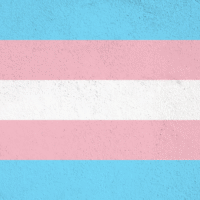Client Focus: Graciela
Graciela is a middle-aged, Spanish-speaking trans woman living with HIV. Her journey, like that of many others at the intersection of marginalized identities, is filled with daily resilience, hard-won dignity, and bureaucratic obstacles that too often go unseen.
In November, Graciela received a Medicaid termination notice. According to the letter, she had failed to provide adequate proof of her Social Security number—even though she had submitted her Social Security card to the correct agency multiple times.
For Graciela, like many of Legal Council’s clients, Medicaid isn’t a luxury—it’s a lifeline. It enables her to access the medications and care necessary to manage her HIV.
But behind the paperwork was a deeper issue, one all too familiar to trans individuals: a system that fails to keep up with the reality of people’s lives. Graciela had recently changed her legal name to reflect her identity, a powerful step in affirming who she truly is. However, the Illinois Department of Human Services (IDHS) hadn’t updated her Medicaid records accordingly. As a result, despite receiving a timely copy of her Social Security card listing the number associated with her case, IDHS saw only the name—and denied her coverage.
Raine, a Legal Advocate at Legal Council, partnered closely with Graciela to navigate the complexities of the legal system. Together, they faced the challenges that come with limited English proficiency, chronic health issues, and the persistent burden of transphobia. Through their collaboration, Graciela knew she didn’t have to face these obstacles alone.
Together, they prepared for a Medicaid hearing at which Raine explained the situation clearly and firmly: the only issue was a name mismatch, not a lack of documentation. Once the caseworker understood, they acted quickly. Graciela’s Medicaid benefits were restored shortly after, and even backdated to March of 2024, so she wouldn’t have to face any financial repercussions from the months of unnecessary disruption.
Graciela’s story is about more than a single case. It reflects a system that often overlooks the most vulnerable—especially those who are trans, living with HIV, and who speak a language other than English. But it also highlights the power of advocacy, community, and the importance of being seen for who you truly are.


